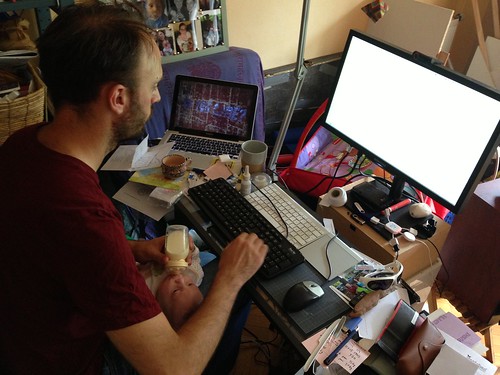Launch of the English version of the website
Dear all
It has been two years now since the launch of AIME. During that time, we have achieved some of the project's major goals: we have published the book - the inquiry's provisional report - in two languages French and English); built an international network of scholars and practitioners who are working on the various modes of existence; organized a number of meetings to fine tune the research's methods and content; mobilized certain artists to collect and document the modes and their manifestations; and, we have released a web platform, the digital companion to the book, which enables you to explore and further the inquiry.
Today we are releasing a newer version of the digital platform, featuring the project's English content. This includes the text of the book itself and associated vocabulary and documents. We have improved the search engine: now you will be able to search any content on the digital platform, including bibliographical references. We developed a bookmark system that allows you to save interesting paragraphs and media that you may come across on the site.
Unfortunately, the development of these features took longer than expected thus you will not yet be able to annotate items on the platform, or discuss and propose new documents in the inquiry. This, however, should not be too surprising – for two main reasons: On the one hand, the whole of the platform's development has been a continuous learning-by-doing process - indeed, we had to rethink more than once the site's architecture - and there were moments when we felt as though we were reproducing Terry Gilliam's film, “Lost in la Mancha”. We hope to share with you some day the entire anecdotal history of the project... On the other hand, striving to contribute to the fledgling field of the digital humanities, we engaged in long and passionate discussions about how best to re-imagine the role of footnotes in a digital environment. We also considered long and hard how we might best enable the user to contribute – in a more meaningful way than by simply leaving comments – to the existing research documentation and so on …
In this regard, it is worth drawing further attention to one of AIME's innovations: while the Digital Humanities field is producing remarkable results in terms of the use and application of data mining methods and tools, resulting in a huge array of experiments in distant reading practices, only a few experiments have been carried out in terms of furthering and reinventing close reading practices. Furthermore, most of these have been driven by market considerations, and an acceptance of the mere transposition of content from paper to screen (be that a tablet or an e-book reader) as sufficient innovation. The very few reference points we had, the desire to provide a pleasurable and focused reading experience and attempts to redefine close reading led, inevitably, to our accruing delays.
That said, and with your continued patience and indulgence, we plan to release by September the platform with the functionality that is, currently, missing – namely systems for annotation and contribution as well as functionality enabling users to read/watch in full screen all of the platform's content.
We also hope to ensure a continuity of experience of the platform regardless of the browser used (at present it has been optimized for Chrome only and tested only for Firefox).
We look forward to receiving your comments and suggestions about the platform and to engaging with you on the real core of the research the platform contains, namely the discussion surrounding the modes of existence. To that end, you can contact us by emailing contact@modesofexistence.org and follow our official Twitter account @AIMEproject with the official hashtag #modesofexistence.
AIME Staff
Who said that French people doesn't work in August?
note that no babies were hurt during this session.

